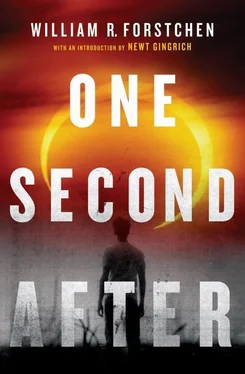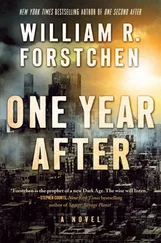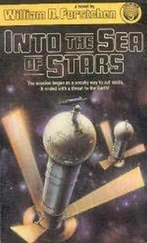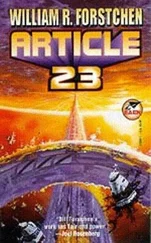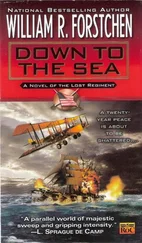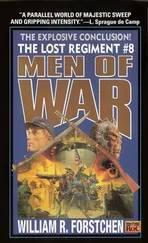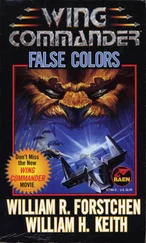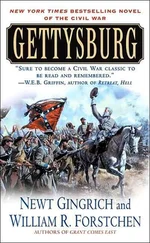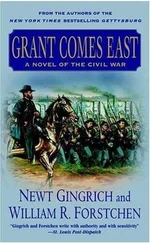Regarding Kellor’s prediction about another epidemic, he had been right. Days after the battle, what some were now calling the plague month began.
There were nearly three thousand new graves at the golf course, one of them for Doc Kellor. The medical staff had been particularly hard-hit; there were only two doctors and one vet remaining. It had indeed been like the plague in years of old, most physicians heroically standing to their duty until they were felled, but one had just fled, hiding in his cabin, and was now an outcast, the town pariah.
The simple combination of disease and starvation had created a death rate as terrible as that of the Black Death of the fourteenth century. Added in were hundreds with hepatitis A, others carrying B and C, which would kick in later, the usual injuries, the minor cuts that led to amputation and death.
It was the dying-off time and by yesterday’s count just over forty percent of the two communities, which had been alive little more than four months back, were still alive. As a war, it was the most horrific since the Middle Ages. The legendary twenty-five million dead in the Soviet Union during World War II had been but one-seventh its population.
And yet now briefly they were swimming in food. The carefully guarded cornfields had yielded a bumper crop. Every apple orchard was striped of its fruit, even the wormy ones. Pumpkins had fleshed out to fifteen, twenty pounds or more, and would not just be used this year for carved decorations. The college scavengers were bringing in bushel baskets of nuts, pinecones, sunflowers, and in some places finding remains of orchards up in the woods where a homestead had been a hundred years ago, the long-forgotten trees stripped clean.
But the food had to be carefully counted, for it would need to last until the coming of spring. And what seemed like a bounty was, in fact, barely enough, actually not enough, for all to get through the winter.
As for meat, there was now almost none, still the occasional squirrel, rabbit, raccoon, or possum, but deer, bear, even wild boar had been hunted to near extinction. Yet again, the false memories of the supposed life on the frontier or up in the mountains now, that all one needed to do was get a gun, walk for a few hours, and then drag back a hundred pounds or more of meat. But when thousands were thinking the same thing, in an area even as extensive as five hundred square miles, and hunting season was now 365 days a year, the game was all but gone.
Hunting parties from the college were going up into the high mountains for three and four days at time and, more often than not, coming back empty-handed. The forest had been hunted clean.
So there was food, but there was no balance to the food and the dying continued, even as apples were carefully hung to dry, corn stacked up in dry sheds, all covered by armed guards twenty-four hours a day. The few elderly in the community still alive were pressed into service to teach the now all but forgotten art of canning. The problem was, there were hardly any proper canning jars and gaskets, which sealed them, to be found.
Every day he had been terrified for Makala, who was in the thick of it, but she had survived untouched. She had avoided their house during the dying month, only coming down to check when John was finally hit by it and then Jen, though through luck, or good nursing, the flu symptoms had run their course in a few days. Elizabeth had caught it as well, and John did not feel uncomfortable that, being pregnant, she was entitled to the now very rare antibiotics and additional rations to see her through. Fortunately, it had not touched Jennifer.
But for her, the risk of flu was no longer the concern.
It was Jennifer all were focused on now. The remaining insulin had finally lost all potency two weeks back, more than a month earlier than John had planned for. With the final bottle Makala risked several injections that finally totaled 800 units to bring Jennifer’s blood sugar level back down from 520 to 145. It was now back over 600, climbing, and six days ago she had collapsed. All the symptoms that Kellor had long warned John about were now full-blown. Extreme thirst at first, nearly uncontrollable urinating, a simple scuffed knee that had never really healed over now raging with infection, red streaks up nearly to her groin, her fever soaring to 103. Her immune system had failed, kidneys were failing… her precious little body was shutting down.
He knew he should drive up to the gap to check on the guard there, but that had to wait. The drive around town had fulfilled John’s duty for the moment, though as he turned the corner past the ruins of the Front Porch he could see, up the street, two bodies lying out along the curb, waiting to be picked up, and made a mental note to call Bartlett.
John pulled into his usual slot in front of the town hall and got out, Makala joining him.
Judy was actually the person who was the center of the town as the switchboard operator, having risen from the quiet role of a secretary. She knew every call coming in and out, lived at the office, and at night monitored the battery-powered radio, pulled out of the blue Mustang, listening for news from the outside, which she would then post each morning on the whiteboard outside town hall.
As he walked in he could see the latest, a report that Asheville supposedly had a reliable two-way radio link with Charleston. Four emergency supply trucks had arrived in Greenville, South Carolina, and one was promised to Asheville by the end of the week. She had not posted the news, though, when she had called into him just after dawn, that a helicopter had landed yesterday evening at Memorial Hospital, reportedly carrying a load of medicines.
That knowledge would trigger an attempt by those still capable of moving to get into Asheville, and he knew that Asheville would not let any of them through the barrier near Exit 53 that was now a permanently fortified position, definitely payback for their defiance regarding the refugees back in the spring. The few refugees from outside trying to get farther west were allowed through, but anyone from Swannanoa or Black Mountain seeking to cross the line to barter was blocked.
He walked into the office, Judy looking up from her switchboard.
“Hi, boss.”
“Judy, connect me to Memorial Hospital. Put it through to my line and the line in the conference room.”
“I’ll get on it.”
John went into his office, the office that had been Charlie’s. John had not changed it all that much, the only addition a framed Polaroid picture of the survivors of what was now called the First Battalion, Black Mountain Rangers. Eighty-one soldiers, standing in front of Gaither Hall, the picture taken a week after the battle. They looked twenty years older than the kids in another picture beside it, the annual graduation photo of all the seniors, taken just two days before “The Day.” Some were in both photos. The kids in the graduation photo looked fresh, ready to go out and take on the world with enthusiasm and joy. The rangers, they looked as if they could take on the world, by killing. The picture always made him think of a painting by Tom Lea, a combat artist of the Second World War, of a shell-shocked marine at Peleliu called The Two Thousand Yard Stare. “Boss, I got a line open. Pick up.”
John lifted the rotary phone off the cradle and there was a crackling hum.
“Memorial Hospital.” The voice sounded faint, distant.
“This is Black Mountain calling,” Judy said. “Can you connect a call to the hospital director, Dr. Vance, from Dr. Matherson, director of public safety in Black Mountain?”
Makala had advised Judy to use John’s old title. Doctors of the M.D. kind looked down on doctors of the Ph.D. kind, but still, it would help to get through.
Читать дальше
